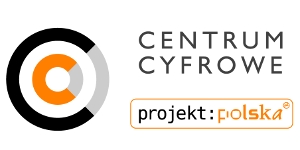 Key developments in copyright reform in Poland- February 2013. The project is conducted with the support of Open Society Foundations. Most of the links lead to content in Polish.
Key developments in copyright reform in Poland- February 2013. The project is conducted with the support of Open Society Foundations. Most of the links lead to content in Polish.
1. In early February, the Polish Ministry of Administration and Digitization ended a consultation period for a draft proposal of the assumptions of a Bill on the Openness of Public Resources. The proposal initiated a heated debate on the issue of opening public resources. Of the three areas targeted by the proposal (education, science, culture), the openness of cultural works proved to be the most problematic. Heavy criticism of the proposal was made by various associations of creators and collecting societies. The proposal to make openly available publicly funded educational and scientific works faced little criticism. Centrum Cyfrowe Projekt: Polska published it’s statement [PL] as part of the consultations. In it, we support the idea of opening public and publicly funded resources, although we are critical of some of the proposed solutions.
2. In early February, Centrum Cyfrowe and Bibliosfera.net have launched an educational campaign „You can copy the whole book”. The idea was to promote what is actually allowed under exceptions and limitations of copyright law in Poland, using the simple case of photocopying books. According to art. 23 of Polish Copyright Law, it is legal to make a copy of a book for purpose of private use, without permission of the author and free of charge. As part of the campaign, we have pointed out precisely the boundaries of this exception (that it is not allowed to distribute copies outside the circle of friends and relatives or for commercial purposes).
Soon afer our posters were distributed to libraries and promoted online, our campaign was criticized by the major Polish book publishers association, Polska Izba Książki, which accused the campaign of spreading inprecise information on exceptions and limitations to copyright, of violating market competition, and of enticing to copyright violation (read the statement). A more reserved comment was published by another publishers association, SAiW „Polska książka”.
In our responses to these criticisms, we re-affirm our belief that the legal uses promoted by us fall within the Polish exceptions and limitations of copyright law. The fact that such harsh and immediate reactions occur in response to relatively small and simple campaigns is proof of how difficult it is to educate about rights of users within the scope of copyright.
3. In February Poland saw two important and conflicting verdicts concerning intermediary liability. Both concerned popular file-locker services. In the first case, the currently most popular Polish file-locker, chomikuj.pl , sued a collection society for slander after being called a “pirate service”. The service argues that it does not publish by itself any copyrighted and thus infringing material. In a first ruling, the judge decided that Chomikuj cannot use a “safe haven” since it’s not only storing but also distributing content. However to support his ruling the judge used a civil law paragraph that is normally associated with possessions left in cloakrooms. Chomikuj decided to appeal.
4. Another ruling was quite the opposite from the one mentioned above. In 2009, the police conducted a raid and closed the most popular Polish file-locker of the time – odsiebie.com. The raid was initiated by some of the collective societies and afterwards the police and prosecutors were awarded prizes for this action. In two instances, judges noted that odsiebie.com was operating lawfully, that the raid took place based on a bogus an unlawful notice-and-takedown request, and that odsiebie.com was complying with every correct notice-and-takedown request which means that it was operating within a “safe haven”.




